
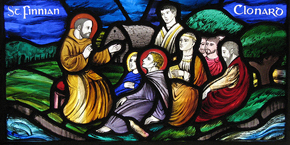

St Brendan of Kerry
 There is very little secure information concerning Brendan’s life, although at least the approximate dates of his birth and death, and [...]
There is very little secure information concerning Brendan’s life, although at least the approximate dates of his birth and death, and [...]

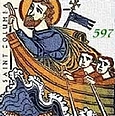
Summary: St Columba, abbot, missionary also known as Colum Cille, was born in Gartan, County Donegal in 521 and was of royal lineage. He studied under Finnian of Moville and Finnian of Clonard. He founded monasteries in Deny, Durrow, Iona and possibly Kells. From Iona, which became his [...]

Summary of St Brendan, abbot. a Kerryman who was born in 484-486. He studied at Clonard under Finnian. His name is connected with many places in Kerry such as Ardfert and Mount Brandon. He visited Scotland and reached the Hebrides and possibly areas beyond. He founded a monastery [...]
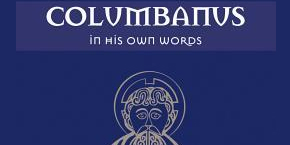

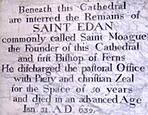
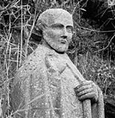
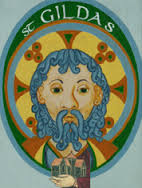 St Gildas is best known for his historical work ‘De excidio Britanniae’, (“On the Ruin of Britain”) and for a Penitential, both of which were widely used in Ireland, [...]
St Gildas is best known for his historical work ‘De excidio Britanniae’, (“On the Ruin of Britain”) and for a Penitential, both of which were widely used in Ireland, [...]